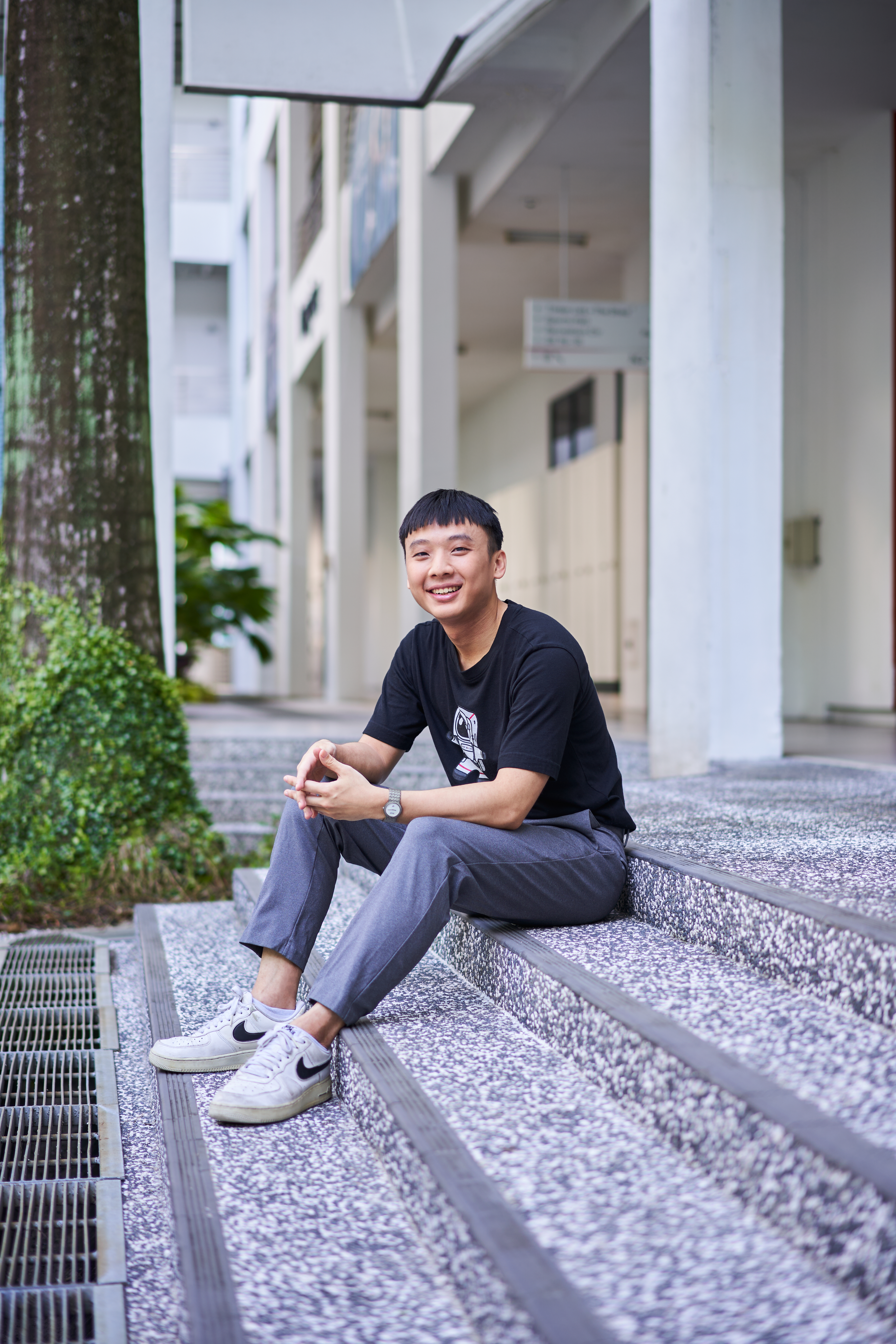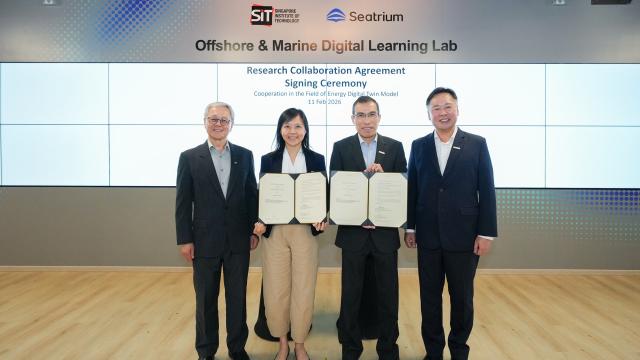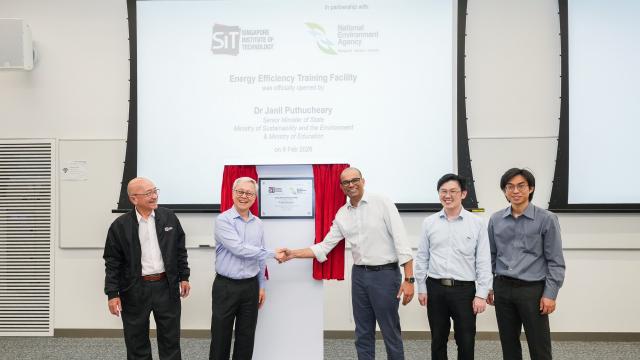Find out how SIT’s degree programmes are designed to equip graduates with relevant and updated skills for the working world.

(SIT Photo: Fotto-graffiti/Hua Zheng)
The world is awash in an ever-growing avalanche of data – the World Economic Forum expects more bits and bytes to be generated in the next three years than over the last 30.
But with this information explosion comes the ‘data paradox’: Businesses are collecting data faster than they can analyse and use it, yet they constantly need more data. According to Dell Technologies, 89 per cent of Singapore businesses “are being overwhelmed by the proliferation of data and are facing challenges in capturing, analysing and acting on it” despite spending more on information technology.
The same report noted that even as 72 per cent of Singapore businesses gather data faster than they can analyse, 74 per cent are also constantly looking for more data.
The paradox highlights the dearth of manpower trained in harnessing data.
At the Singapore Institute of Technology (SIT), one of its key objectives is looking at how to fill manpower gaps in various industries.
Given the growing reliance on data for optimal business performance, the degree programmes in SIT are designed to ensure students graduate with digital and data literacy to tackle real-world problems once they step into the working world.
Data-handling Skills in Media and Communications
The fluid media industry relies heavily on data to conceptualise and execute content concepts. SIT’s Digital Communication and Integrated Media (DCIM) programme equips students with the skills to collect, analyse and apply findings through its heavy emphasis on research, which makes up about 20 per cent of the core modules.
The three-year direct-honours programme also provides students with applied research opportunities. Through collaborations with industry partners, students get to work on actual business cases. They will conduct research and then present their findings in a professional environment.
Students will also work closely with industry professionals through the eight-month Integrated Work Study Programme (IWSP), where they hone their existing skills and learn new ones.
Such valuable opportunities are what drew Jarrod Chua to the DCIM programme. The second-year student said: “I want to be able to apply what I've learnt to improve myself as a communicator and elevate my Spacey Tales brand to greater heights.”

With opportunities to engage with industry professionals throughout his degree programme, Jarrod Chua looks forward to applying what he has learnt. (SIT Photo: Keng Photography/Tan Eng Keng)
Combining Electronics and Data Engineering
SIT ensures its programmes are relevant through a strong network. For example, the curriculum of its Electronics and Data Engineering (EDE) programme is reviewed every two years by the university, industry partners, industry leaders, as well as the Singapore Economic Development Board.
The four-year direct-honours programme, jointly offered by SIT and the Technical University of Munich, is reinforced with new and relevant modules such as Data Analytics and Machine Learning. Other data-related modules like Databases and Algorithms, Big Data Theory and Practice, and Data Mining are also worked into the curriculum to train students in applying digital technologies to the electronics and semiconductor manufacturing industry.
Besides a 12-month IWSP, students will also go through a three-week overseas immersion programme in Germany. These allow them to gain working experience in and outside of Singapore and broaden their outlook.
The work stints appeal to Samuel Koh, a third-year student of the EDE programme. “I was attracted to the IWSP as it will enable me to garner substantial work experience.”

Third-year student Samuel Koh saw SIT’s IWSP as a key draw when deciding his university. (SIT Photo: Keng Photography/Tan Eng Keng)
Practical Skill Sets for the Fintech Sector
SIT’s Applied Computing programme with a specialisation in Fintech is also stacked with data modules. Modules like Database Systems, and Data Engineering and Visualisation empower students to utilise data effectively for the financial sector.
To provide a seamless transition to working life, the three-year direct-honours programme involves numerous industry projects that develop students’ professional skills in real-world settings. Another unique aspect of this programme is the Term-In Term-Out structure, which sees students learning and working in companies for nearly half of the total degree programme duration.
"Fintech has created many opportunities to revolutionise existing markets and create new ones. I am excited and looking forward to being a part of this movement,” shared Toh Ke Han, first-year student of the programme.
SIT prides itself on designing curricula that are closely aligned with what is happening in the real world. Thanks to its strong ties with industry partners, students can always be assured of graduating with relevant skill sets that are highly sought after in their respective fields.
Admissions to SIT is open from now till 19 March 2023.















![[FA] SIT One SITizen Alumni Initiative_Web banner_1244px x 688px.jpg](/openhouse2025/sit-teaching-and-learning-academy/openhouse/openhouse/sites/default/files/2024-12/%5BFA%5D%20%20SIT%20One%20SITizen%20Alumni%20Initiative_Web%20banner_1244px%20x%20688px.jpg)


